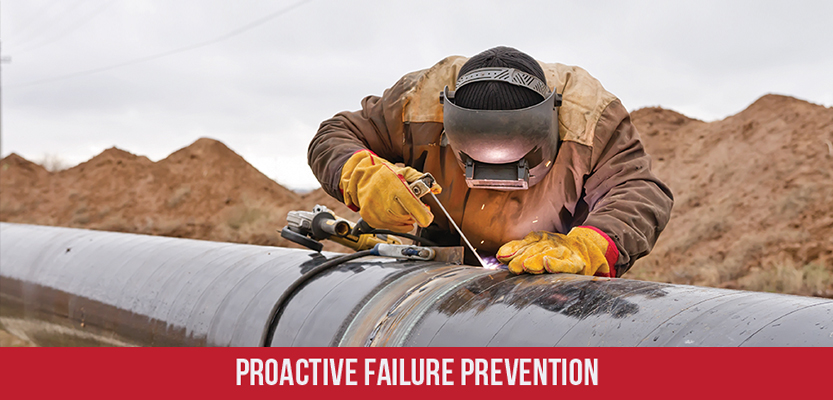Over the last century within our country, there has never been as large an emphasis on pipelines and pipeline safety as there has been within the last decade. Oil and Gas pipeline operators have a lot of responsibility toward their community, employees, and environment. This is especially evident with the increased regulations from government agencies, such as the Pipeline and Hazardous Material Safety Administration (PHMSA), strenghtening requirements around risk analysis for liquids operators. The map image below details the number of pipeline incidents between 2010 and 2015 in the United States alone, and thus illustrates the necessity of these regulations.

Here at SSP, we are helping these pipeline practices around the country better understand, assess, and act on the risks associated with their pipelines. Recognizing safety as being paramount and the importance of the regulatory oversight, one pipeline operator chose to employ SSP’s services in order to advance and improve their organization. The intent/purpose of this agreement was to help the pipeline operator meet the requirements of 49 CFR 195.452 for future audits and internal analysis.
Note: For an in depth look at the details of 49 CFR 195.452, please refer to one of the following links: https://www.law.cornell.edu/cfr/text/49/195.452 or https://www.gpo.gov/fdsys/granule/CFR-2011-title49-vol3/CFR-2011-title49-vol3-sec195-452
Overview of a Specific Project: Risk Analysis for Liquids Operators

The liquids pipeline operator specializes primarily in crude oil, natural gas, NGLs, and produced water gathering pipelines. Some the Operator’s pipelines fall under PHSMA regulations, thus requiring risk and High Consequence Area (HCA) analysis as interstate transportation pipelines. Per the requirements stated within 49 CFR 195.452, these analyses are also needed for audit purposes.
In order to effectively complete all work requested by the Operator, SSP partnered with another local Colorado company servicing the energy sector – Integrity EPC (IEPC). IEPC is known for being pipeline and asset integrity engineering experts that also provides pipeline and asset field integrity services. In addition, IEPC is able to pair this pipeline expertise with project engineering services, new construction QA/QC support and oversight. To assist the Operator, IEPC drafted and implemented an updated Integrity Management Plan (IMP) that would withstand a PHMSA audit and incorporate updated operator workflows/calculations. Additionally, IEPC developed all necessary workflows related to this IMP. Finally, IEPC incorporated risk and HCA results (developed by SSP) to establish 2017 baseline and continual assessment plans of the Operator’s pipelines utilizing ILI and other assessment technologies.
As a critical partner with IEPC, SSP Innovations (SSP) was brought on as a direct fit to handle the risk and HCA analysis portion of the Operator’s project. With the in-house GIS expertise, SSP was able to utilize the Operator’s data, consume during analysis, and output usable/readable reports and exports. The pertinent pipeline expertise from current employees provides real-world assistance and reference to the Operator’s data being used. In addition, SSP completed a 2-day on-site Risk workshop with client to cover 9 threat categories relevant to all pipelines, outputting necessary workbooks for client review and models/maps that the client can reference during any audits or meetings. Risk calculations were then performed based on the Risk workshop covering the threat categories.


Liquid HCA calculations were completed using the standards spelled out by 49 CFR 195.452 and PHMSA. These analyses were then used to create the models previously referenced. Full GIS results and models delivered to the Operator for continued use and reporting, plus full documentation of all tasks completed to the client. The documentation was then included in the Final IMP documentation completed by IEPC, as mentioned above.
Final Thoughts and Conclusion: Why We Perform HCA and Risk Analysis for Liquids Operators

With the increased scrutiny on liquids and gas energy operators by regulatory agencies, it becomes ever more important for these operators to manage and maintain workflows that ensure all necessary safety requirements are met. Such endeavors can be clearly seen with the work successfully completed by both Integrity EPC and SSP Innovations for this particular client. Challenges like this will not be going away from energy pipeline operators any time soon, and both IEPC and SSP will be there to make the transition smoother for these companies.


What do you think?